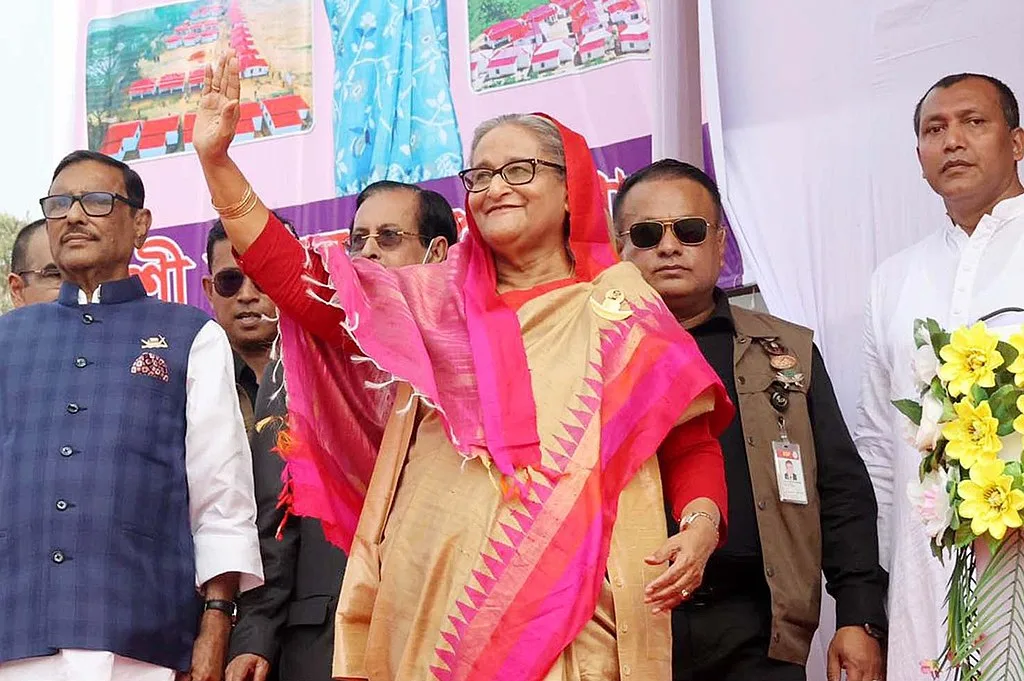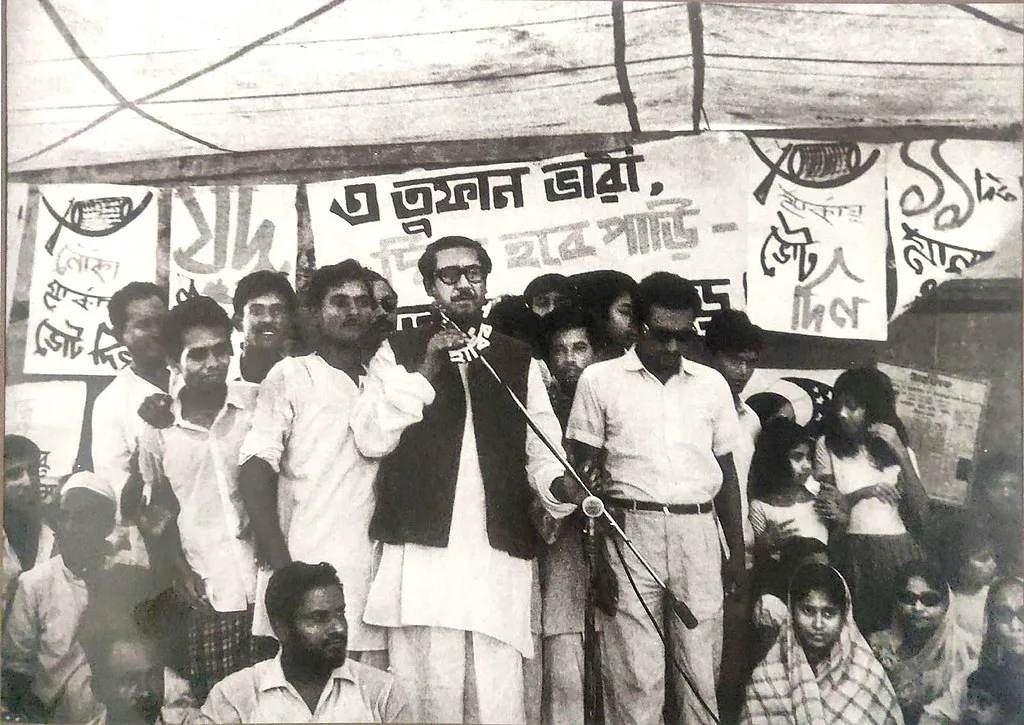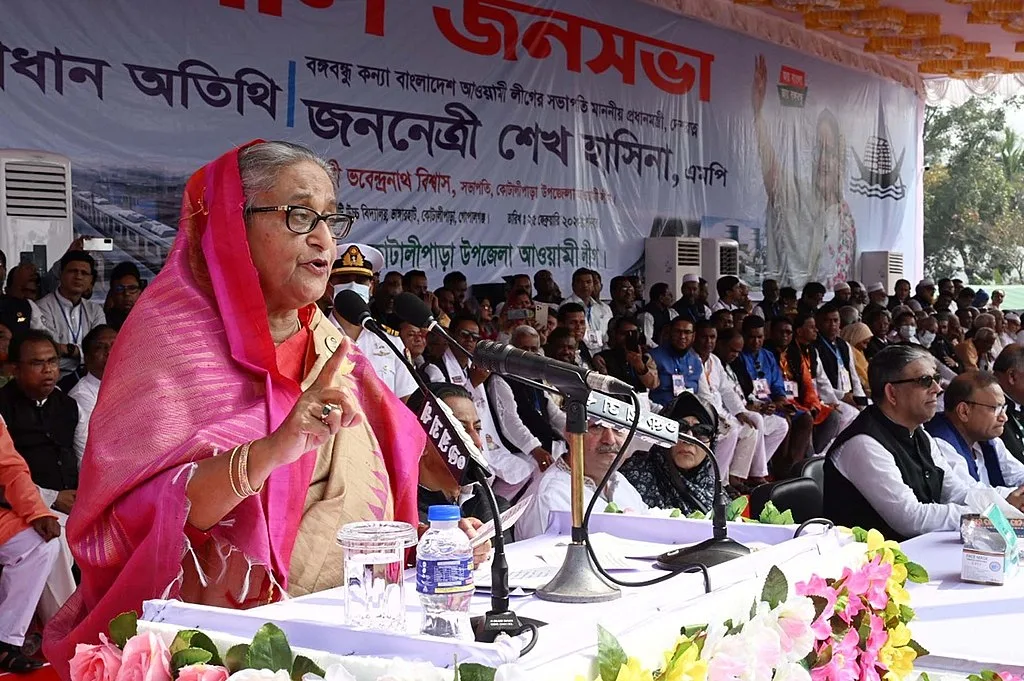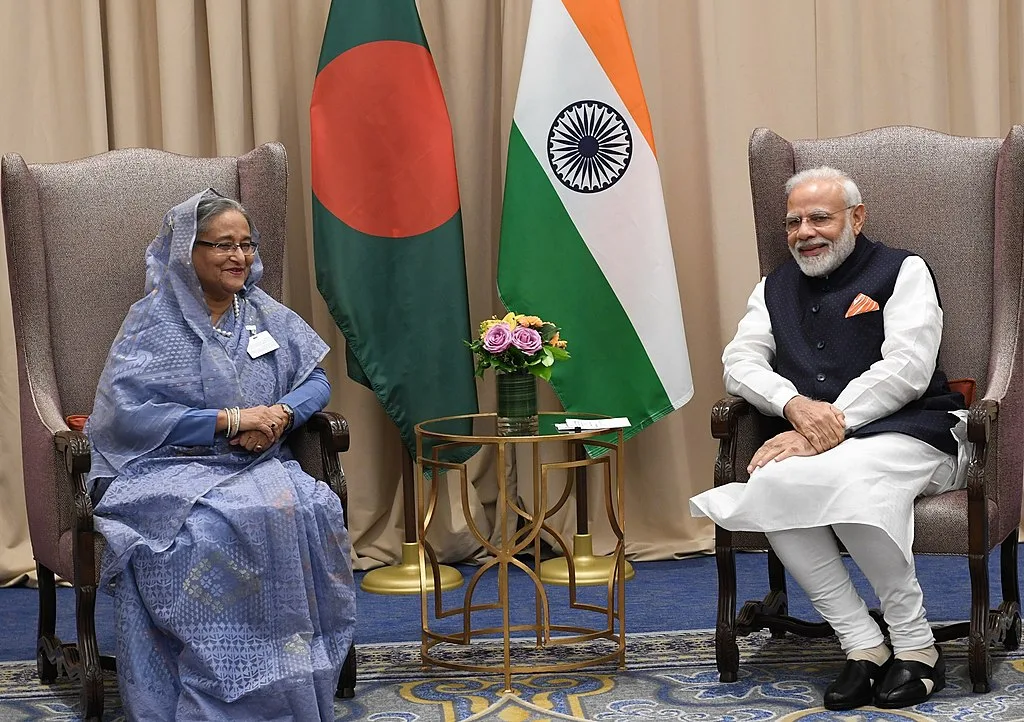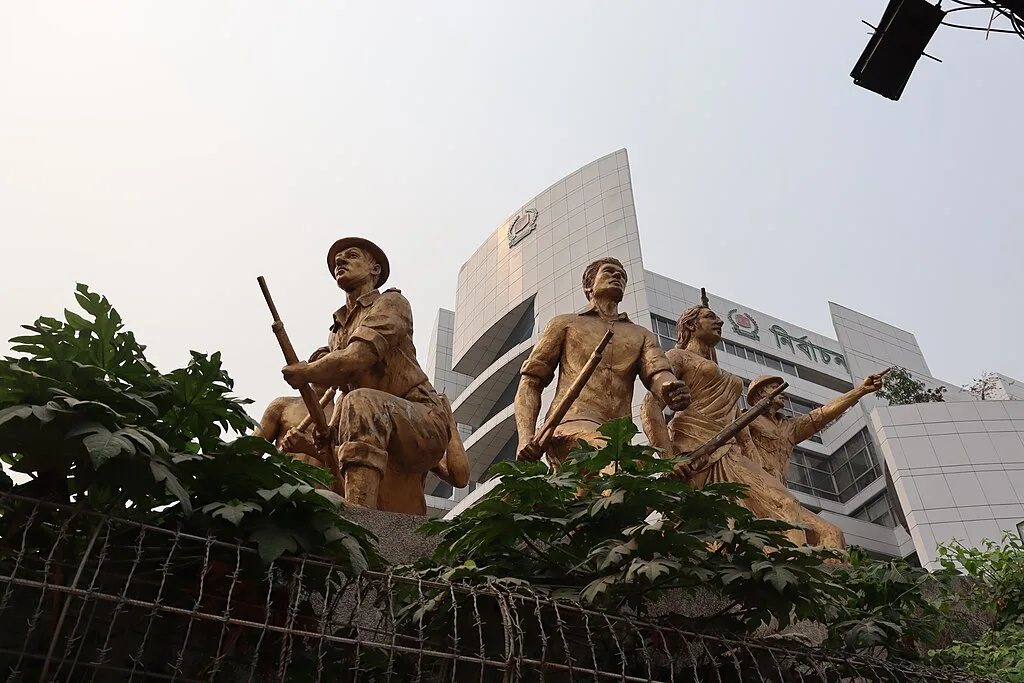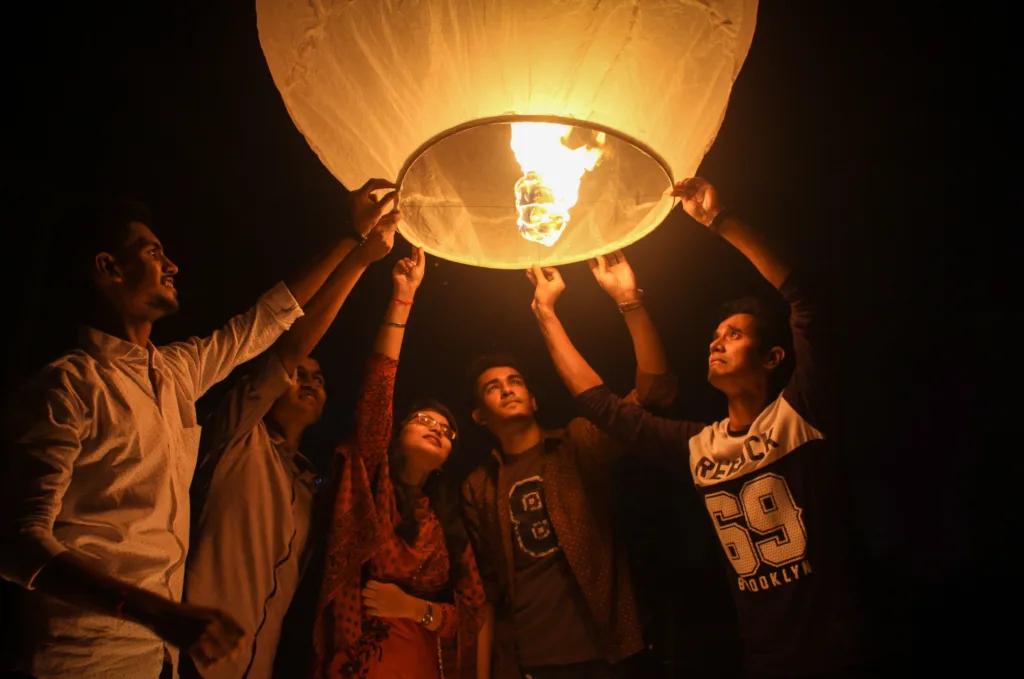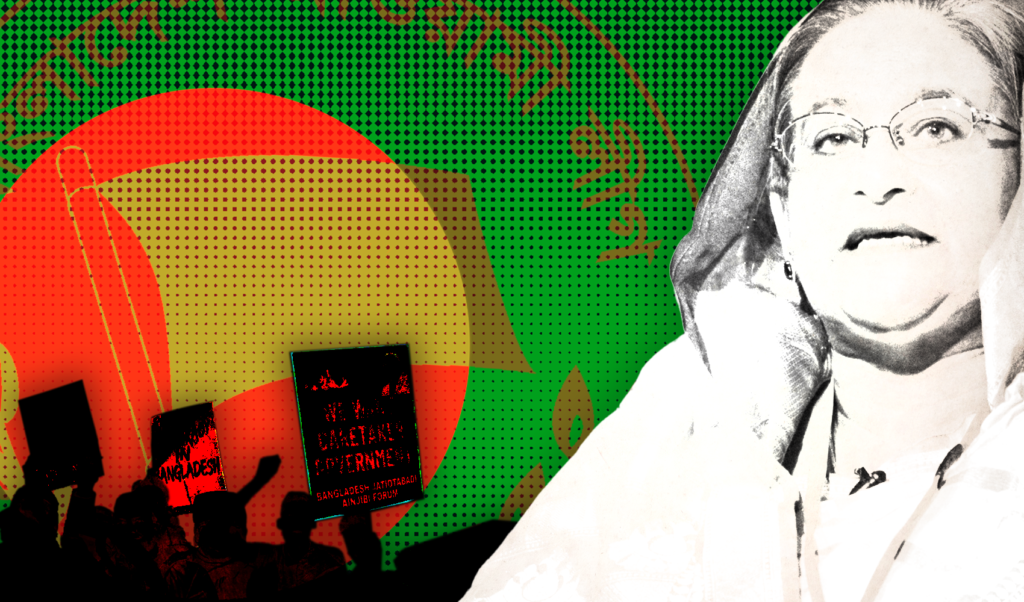As Bangladesh votes, the world’s major powers are seeking to exert control over what happens next, with Sheikh Hasina set to win another disputed term.
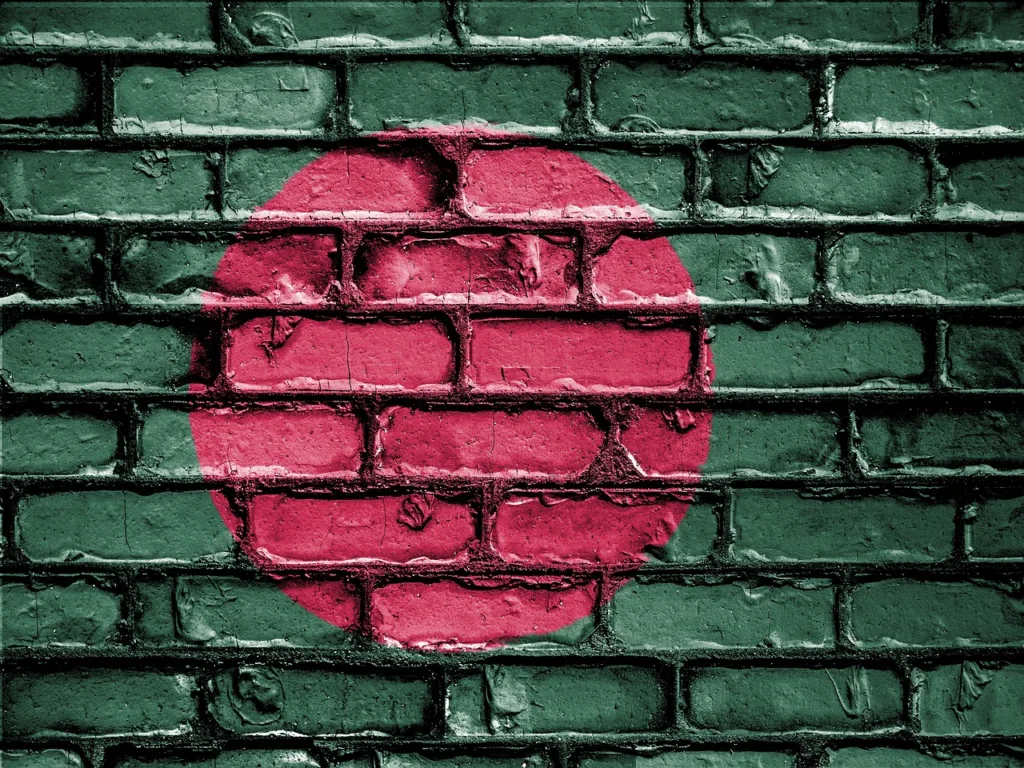 Superpower rhetoric about what the opposition describes as Bangladesh’s “farcical” election reveals the swirling geopolitics which Bangladesh is being dragged into. : David Peterson via Pixabay Pixabay licence
Superpower rhetoric about what the opposition describes as Bangladesh’s “farcical” election reveals the swirling geopolitics which Bangladesh is being dragged into. : David Peterson via Pixabay Pixabay licence
As Bangladesh votes, the world’s major powers are seeking to exert control over what happens next, with Sheikh Hasina set to win another disputed term.
When Bangladesh goes to the polls on January 7, the great performance of democracy will take centre stage. Voting booths will be set up, voters will cast votes, and they will be counted. However, despite the show, there is no surprise twist lurking for election watchers, because the result is already known.
Sheikh Hasina will be re-elected for a fifth time, and her party, the Bangladesh Awami League (AL), will form government once again.
Bangladesh’s longest-serving female Prime Minister will extend her reign because her main opposition Bangladeshi Nationalist Party (BNP) has boycotted the election.
In explaining the reason behind the boycott, BNP’s acting chairman Tarique Rahman told Diplomat Magazine that “as long as Hasina retains power, every election in Bangladesh will involve extensive irregularities, making the much-anticipated level-playing field a distant dream”.
Since late October 2023, more than 20,000 opposition activists have been imprisoned. Five of these activists died in prison. Human Rights Watch termed the government’s response to the opposition as an “autocratic crackdown” ahead of the election.
Bangladesh’s Agriculture Minister Mohammad Abdur Razzaque told media that the government has offered freedom to the imprisoned BNP leaders in exchange for participating in the election, hinting that this crackdown was merely a bargaining chip to legitimise the election.
Reports of BNP grassroots activists spending time away from their families and homes to avoid arrests have surfaced.
A New York Times report has claimed that about one million of BNP activists are facing court cases. The number of cases filed against each opposition activist varies from dozens up to 400.
The government justifies the crackdown by claiming that opposition activists are being violent. They are setting fire to public transport and hurling crude bombs at police and officials.
The BNP accuses the government of sabotaging the opposition movement with government agents and AL party members posing as opposition to commit violent acts.
In the absence of an independent law enforcement and judiciary, it is difficult for external observers to get to the bottom of these claims and counter claims.
Against this backdrop, the rhetoric of regional and global superpowers like India, China, Russia and the US about what the opposition described as Bangladesh’s “farcical” election reveals the intriguing dynamics of the swirling geopolitics which Bangladesh is being dragged into.
India and China are supporting the Bangladeshi government in its tilt toward another term. The two regional powers who oppose each other across Asia make strange bedfellows in the Hasina camp.
Sheikh Hasina met with Xi Jinping in August, with Xi claiming China is ready to “strengthen coordination and cooperation with Bangladesh in multilateral affairs and safeguard international fairness and justice”.
China has invested heavily in Bangladesh through its Belt and Road initivative, while billions in construction contracts have been opened up for Chinese firms going the other way.
India, meanwhile, shares over 4,000km of its land border with Bangladesh and uses Bangladeshi ports as transit to connect its north eastern frontier to other parts of the country. This was only made possible because of the Hasina government’s friendly gesture to India.
The US says it wants a free and fair election in Bangladesh and has imposed visa restrictions on what it claims are “Bangladeshi individuals responsible for, or complicit in, undermining the democratic election process.”
In an attempt to spread the blame, the statement claimed, “these individuals include members of law enforcement, the ruling party, and the political opposition.”
Russia has publicly accused the US of interfering in Bangladesh’s internal matters and claimed Washington is plotting an Arab-Spring-like post election protests in Bangladesh to overthrow Hasina’s government.
Despite Moscow’s rancour, the US remains one of Bangladesh’s most significant trading partners. The US is a major destination for Bangladesh’s billion-dollar textile exports. In addition, because of the US’s liberal visa regime, many Bangladeshi businessmen, politicians, military elites and bureaucrats are able to make new homes in the US.
US calls for a fair election come against the backdrop of two lopsided votes in 2014 and 2018. Joe Biden’s administration levied human rights sanctions against Bangladesh’s elite paramilitary force Rapid Action Battalion and several of its former officials following accusations of severe human rights violations, including hundreds of enforced disappearances and extrajudicial killings.
However, these relationships do not exist in a zero-sum vacuum, where every nation is looking to exert their own individual will on Bangladesh.
India and the US are perceived to be allies in the region. The hard work done on growing the relationship from Delhi to Washington has seen a closer diplomatic relationship culminate in the Quad, along with Australia and Japan, aimed almost entirely at deterring China in the region.
However, the US sits apart from the Modi government, which argues it is in its national interest that Hasina’s government continues.
India’s reasoning however could be perceived as somewhat thin under analysis.
In a recent keynote speech in Dhaka, India’s former foreign minister, M.J Akbar claimed that superpowers want puppets who can serve their interest because Bangladesh is important geopolitically. Akbar termed Sheikh Hasina as the “liberator of democracy from dictatorship”.
In reality, all the globally accepted indicators for freedom and democracy contradict Akbar’s claim. The statement shows the general sentiment of the Indian establishment towards Bangladesh: that Hasina’s rule satisfies Indian aims regardless of the trouble for the people of Bangladesh.
Who wins and who loses may be obvious to the pundits in Dhaka, but the weight that it will put on the US and India relationship will continue long after the vote, with an “agree to disagree mentality” likely to test the burgeoning friendship.
Dr Mubashar Hasan is a postdoctoral research fellow at the Department of Culture Studies and Oriental Languages, University of Oslo, Norway. His research was funded by the Norwegian Research Council.
Originally published under Creative Commons by 360info™.


